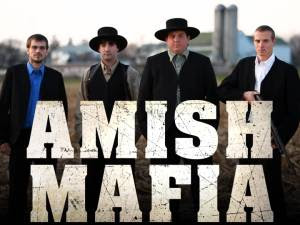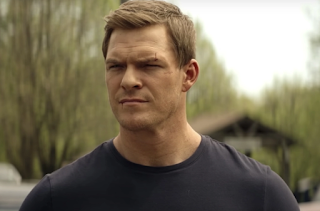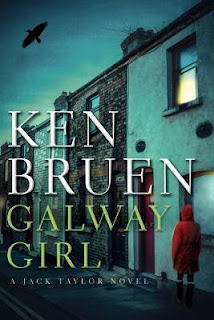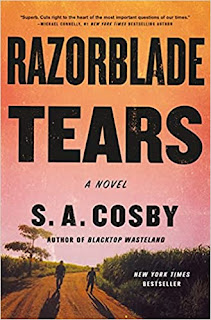 |
| Joe Mabel, CC BY-SA 3.0, via Wikimedia Commons |
By the time you read this, I will be finishing up the 104th book I've read this year. This includes Audible. It's rare I can read that many books in a year. Had I not learned to speed read, I probably would not have pulled this off. With the ability to speed read certain books, I actually could give them the attention they deserved (or didn't.)
The Herculean reading list was driven in part by wanting to finish Stephen King's canon. Assuming only one book in 2023 for Mr. King, I probably will wrap up this years-long project with Holly in October. As I finish up the two latest, Gwendy's Final Task and Fairy Tale, I'll turn my attention to the Bachman books. Rage, which is now out of print by King's request, will likely be the most difficult to read in this era of school shootings. Road Work, though short, will probably be the slog I remember when I first read it twenty years ago.
I also rotated through some classics – Twain, Oscar Wilde, Shakespeare, as well as Harold Bloom's list of novels from How to Read. One from this last list proved to be a massive disappointment. Another I decided to save for later due to its sheer length and a lack of an Audible version that wasn't a glorified radio drama. So what did I read this year?
I'll skip science fiction unless it fits a category here.
First Book: Galway Girl by Ken Bruen. Until this year, I made it a point to start with one of Bruen's Taylor novels. Due to a release date issue, I read is last in November. But Galway Girl seems to be a mulligan for Em's fate in a previous book. A new foil, a virtual clone of Em (deliberately so, as we find out), comes to menace Jack. It's not bad, but gone are Ridge and Maeve. Father Malachy is a more reluctant antagonist. And Clancy is nowhere to be seen except in a couple of scenes. We're left wondering just how much more Jack can take at the hands of his creator, meaning Bruen. We find out in the follow-up, A Galway Epiphany, which I also read this year.
Last Book: We can look at it two ways: on the day I'm writing this, I finished King's On Writing, one of a handful of books I reread annually or every other year. But on the day you read this, I'll be wrapping up an ARC of Right Between the Eyes by Scott Loring Sanders. So far, Right Between the Eyes is turning into a cross between a Stephen King novel with its small-town New England setting and an SA Cosby book, semi-rural crime with lots of secrets and lies.
On Writing, of course, is a must-read for any writer. The book never seems the same to me twice. Maybe because, while I reread it more than other books, I don't read that often.
Best Book Read This Year: Under Color of Law by Aaron Philip Clark. Clark's Detective Trevor Finnegan is setup to fall as he investigates the death of a brother officer. Finn, as he's called, decided to be a cop to "make a difference," even giving up a promising art career to do it.
Rather than a tirade on race, Clark paints a nuanced portrait of LA's racial tension. He does point a finger at the LAPD of the nineties for the present undercurrent of distrust. But Finn is uniquely positioned to see both sides. Yes, police brutality and systematic racism are very real, but Clark manages to convey something that gets lost in the narrative. With each shooting of an unarmed civilian and each violent protest that follows, police officers feel something they're paid not to show: Fear. And each incident makes it worse. Yet Finn understands why a black man also feels fear, so it's double for him with a foot in each world.
Clark gets the whole picture, all the while having Finn confront the same corrupt department politics we normally see. His solution doesn't give his would-be rivals the satisfaction they crave.
Biggest Disappointment: Portrait of a Lady. And some heads are probably exploding over this one. Too bad. I pulled this one from a list of novels recommended by the late Harold Bloom in his book How to Read. Harold owes me an apology. The book begins with the author doing his own literary criticism, which left me screaming, "That's not how this works! That's not how any of this works!" And then we're treated to fifty pages of the problems of rich people. I am aware I said this as someone who also watches The Crown and Succession. The former, though, is history through people who are supposed to represent it. The latter is watching the 1% trip over themselves trying to rule the world. (And let's be honest, it's a joy to watch Brian Cox work.) This started with a bunch of bankers sniffing disdainfully at how it must be sad not to be a rich Victorian. I barely got to see the lady of the title before I bailed.
This is one of those books we're supposed to read, and somehow, King found it praiseworthy. King also likes Roger Corman films whereas I generally skip them unless they have three silhouettes at the bottom making wise-ass comments. (Mind you, Corman has mentored generations of filmmakers, so he can make a movie about Prince Harry's grocery list for all I care. The next Tarantino may learn something from it.)
Biggest Surprise: Ohio: A Novel. This one hit a little close to home. These were Millennials growing up in a town not too dissimilar to the burb where I grew up. It's even set in NE Ohio, my old stomping grounds. My mind's eyes supplied Lucas, Ohio, a town near where my parents spent their final years, as the set surrounding this drama involving five local kids who return as adults for the funeral of a classmate who died a war hero. Ohio captures the despair of the Rust Belt from a generation that doesn't remember when Big Steel and Big Auto ruled. A sixth member of the group is missing. It seems she's gone to Southeast Asia and disappeared, but her actual fate is teased out over the novel It becomes clear that Ohio is less about a fallen war hero who was not the paragon from his eulogy and more about this missing woman who mysteriously still writes home.
Newest Addiction: SA Cosby. This year, I read Blacktop Wilderness and Razorblade Tears. Had to wait until December for the rerelease of My Darkest Prayer, which will be second read of the new year. Cosby does what Ken Bruen does: Paints a dark portrait of a very real place. Instead of Galway, we get Virginia, away from the Beltway and the DC suburbs. Like Pelecanos's DC, which ignores the "visitors," Cosby writes about the south, how religion and race and poverty all go into the stew that is southern culture. Some pieces are quite unpleasant, but the whole is not. And if we're going to call it a stew, then SA Cosby is a master chef.
























